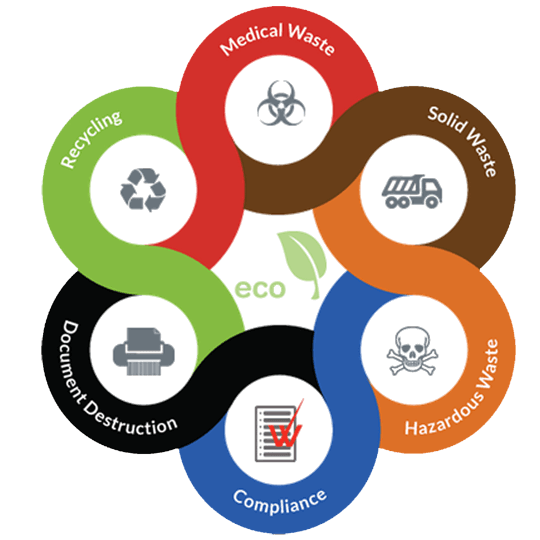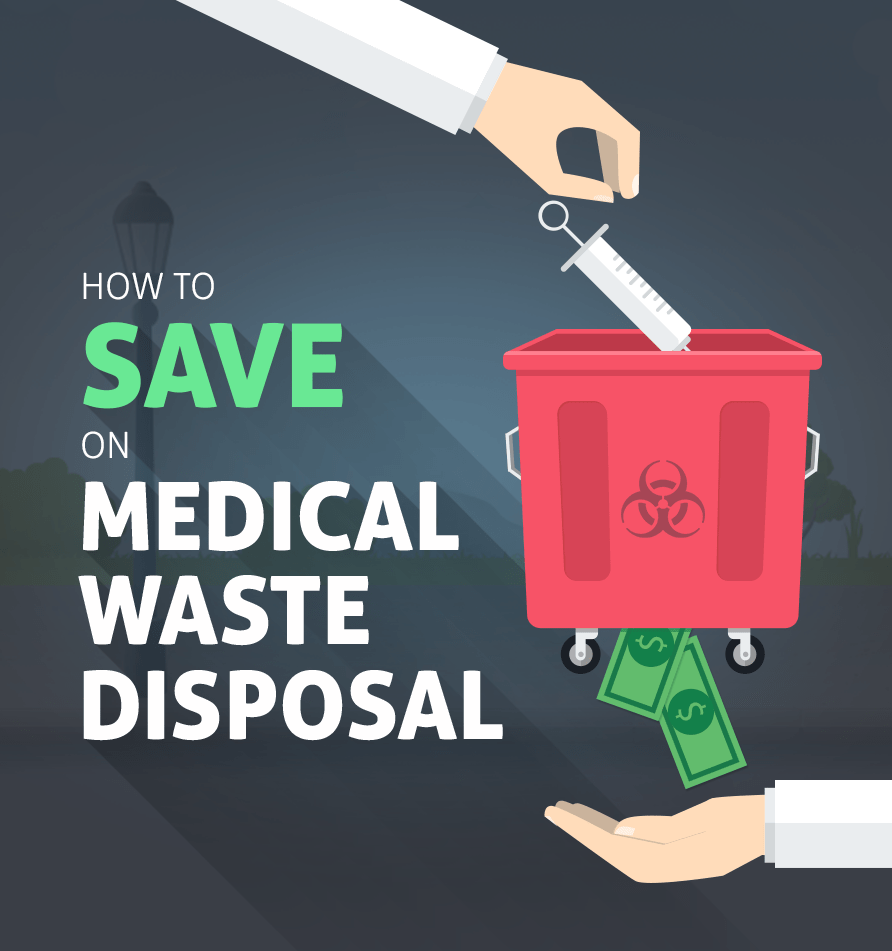Proper Disposal Methods for Clinical Waste
Appropriate disposal techniques for clinical waste are of utmost significance in making certain the safety and security of both health care workers and the basic public. The ideal handling and disposal of clinical waste is essential to stop the spread of contagious diseases and the contamination of the environment. This consists of the safe disposal of sharps, infectious waste, and pharmaceutical waste. Sticking to stringent guidelines set by governing bodies is important to preserve conformity with lawful policies and secure public wellness. This intro will discover the value of appropriate medical waste disposal, offer standards for managing various sorts of waste, and highlight the demand for healthcare facilities to adopt ideal methods. By complying with these guidelines, doctor can add to a more secure and much healthier setting for all.
Importance of Appropriate Medical Garbage Disposal
Appropriate clinical garbage disposal is of utmost significance in order to stop the spread of infections and shield public health. Medical waste refers to any type of waste created during medical treatments or from the medical care market. This waste can have infectious products, such as blood or bodily fluids, sharps, drugs, and various other potentially unsafe compounds. Otherwise taken care of correctly, medical waste can position serious dangers to medical care employees, people, and the basic public.
One of the main reasons for proper medical garbage disposal is to avoid the spread of infections. Medical waste can harbor various pathogens, including microorganisms, infections, and various other bacteria that can trigger diseases. Inappropriate disposal can lead to the contamination of surface areas, water sources, and air, enhancing the danger of infections. By securely throwing away medical waste, the chances of exposure to these pathogens are dramatically minimized, guaranteeing the security of healthcare workers, clients, and the neighborhood at huge.
In addition, appropriate clinical waste disposal is essential for securing public wellness. Medical waste that is not properly handled can contaminate dirt, water bodies, and even food sources. This can result in the transmission of illness to animals and humans, presenting a considerable public health danger (WasteX Medical Waste Disposal). By adhering to appropriate disposal techniques, such as therapy, control, and segregation, we can lessen the prospective dangers connected with medical waste and secure the well-being of the community.
Handling and Disposing of Sharps
When it involves the handling and disposal of sharps, adherence to correct methods is essential for ensuring the safety of healthcare employees and protecting against the threat of injury or infection. Sharps consist of needles, syringes, lancets, and various other products with the prospective to cut the skin or pierce. Due to their possible to transmit bloodborne virus, such as HIV and hepatitis B and C, it is essential to dispose and manage of sharps correctly.

Disposal of sharps containers ought to follow neighborhood guidelines and standards. It is best to utilize certified clinical waste disposal solutions that specialize in the appropriate handling and disposal of sharps to make certain compliance with policies and minimize threats to healthcare workers and the environment.
Guidelines for Contagious Garbage Disposal
Healthcare facilities have to abide by rigorous standards for the disposal of transmittable waste to avoid the spread of microorganisms and shield public health and wellness. Transmittable waste, also understood as biohazardous or biomedical waste, refers to materials that are potentially contaminated with transmittable representatives or various other hazardous compounds. These products consist of blood-soaked bandages, made use of handwear covers, specimens, and cultures. Proper disposal of transmittable waste is important to guarantee the safety and wellness of medical care employees, patients, and the public.
The standards for contagious waste disposal differ depending on the country and local regulations, however there are some usual methods that medical care facilities should adhere to. All contagious waste needs to be segregated from other kinds of waste at the point of generation. Transmittable waste should be delivered and disposed of by certified waste administration companies that specialize in dealing with biomedical waste.
It is vital for healthcare facilities to have detailed training programs in position to educate personnel on the correct treatments for infectious waste disposal. This includes training on waste partition, storage, and managing strategies. By following these guidelines, health WasteX Medical Waste Disposal care facilities can efficiently handle transmittable waste, lower the risk of infections, and protect public wellness.
Ideal Practices for Pharmaceutical Waste Disposal
Drug garbage disposal ought to always be carried out regularly and based on specialist standards. Appropriate management of pharmaceutical waste is necessary to protect public health and wellness and the setting. Drugs can present a considerable threat otherwise disposed of correctly, as they might infect water sources, damage aquatic life, or perhaps add to the growth of antibiotic resistance.
Among the very best methods for pharmaceutical waste disposal is to establish a designated collection system within healthcare centers. medical waste removal service. This system must consist of separate containers for different kinds of pharmaceutical waste, such as run out drugs, unused drugs, and contaminated materials. These containers need to be plainly labeled and located in conveniently obtainable areas to motivate proper disposal by healthcare specialists
In addition, it is essential to educate medical care personnel about the appropriate handling and disposal of pharmaceutical waste. Training programs ought to concentrate on recognizing different sorts of pharmaceutical waste, recognizing the associated dangers, and following the ideal disposal procedures. Normal tips and updates should be provided to make sure conformity with disposal guidelines.
In enhancement to interior techniques, medical care facilities must also develop partnerships with licensed waste management business. These firms focus on the collection, transport, and disposal of pharmaceutical waste. By collaborating with these specialists, health care centers can guarantee that their pharmaceutical waste is thrown away securely and in compliance with regional guidelines.
Compliance With Legal Laws
In order to ensure conformity with lawful policies, it is important for medical care facilities to stick to proper disposal strategies for medical waste. Clinical waste positions a significant danger to public wellness and the atmosphere, making it important for health care centers to deal with and get rid of of it according to the regulation.
Regulative bodies, such as the Occupational Safety And Security and Health Management (OSHA) and the Environmental Defense Agency (EPA), have actually developed guidelines and demands for the proper disposal of medical waste - WasteX Medical Waste Disposal. These policies aim to secure medical care workers, waste management workers, and the public from prospective threats connected with clinical waste

Non-compliance with legal guidelines can lead to serious repercussions for healthcare facilities, consisting of penalties, lawful responsibilities, damage to credibility, and prospective harm to public health. It is vital for medical care facilities to remain current with the most current regulations and continually screen and improve their waste monitoring practices.
Verdict
Finally, correct disposal methods for medical waste are crucial to make sure the safety of health care employees, clients, and the setting. Abiding by guidelines for managing and disposing of sharps, transmittable waste, and pharmaceutical waste is important. Conformity with legal laws is required to avoid the spread of infections and secure public wellness. It is imperative that health care centers preserve rigorous methods for the appropriate disposal of medical waste to reduce threats and maintain a risk-free medical care environment.
Clinical waste refers to any kind of waste generated during medical treatments or from the medical care sector. Transmittable waste, also known as biohazardous or biomedical waste, refers to products that are possibly infected with transmittable representatives or various other harmful compounds. All contagious waste needs to be set apart from various other kinds of waste at the point of generation. Contagious waste must be transported and disposed of by certified waste administration business that specialize in managing biomedical waste.
Sticking to standards for taking care of and getting rid of of sharps, contagious waste, and pharmaceutical waste is necessary. (medical waste disposal service)